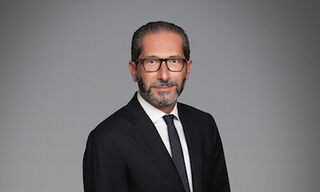The heady trading boom in Asian private banking is over, according to experts and private bankers. finews.ch reveals what wealthy clients want from their bankers instead, and how private banks can still make money.
As the ranks of Asia’s wealthy grew, foreign and domestic banks rushed to tap into the newly rich’s desire to buy and sell stocks – a lot of stocks.
That’s coming to an end.
«We’ve potentially exhausted selling the private banking model to transactional clients,» Seb Dovey, managing partner of wealth management consultancy Scorpio Partnership, said at a conference in Zurich sponsored by wealth management platform Hubbis.
«Based on our thousands of interviews with end clients, a significant amount are looking for delegated or guided advice that can take a more holistic view similar to investors in Europe and the US.»
Neglected Advice
In Europe and the U.S., roughly one-third of clients want delegated advice. In Asia, the share is even higher – 42 percent. Yet, less than 15 percent are receiving it, he says.
Private banks have lived well in Asia from transaction fees, but that is changing: regulation is taking a bigger chunk out of income from trading fees, and clients have also turned more conservative this year compared to 2015, according to a survey conducted by Cerulli Associates.
«Five or 10 years ago, it was all about transactional stuff. Today, there is a much higher willingness to manage money in a discretionary way,» says former Standard Chartered private bank head Michael Benz.
The shift comes as returns are also sliding: long gone are the heady days of double-digit trading returns for clients. Fees, however, haven't kept pace.
«I’m surprised we as an industry still get away with earning 1.5 percent as a private bank if the client is earning 4 or 5 percent. Maybe clients think this is only a temporary phenomenon and rates will go up, but I don’t think they should take that for granted,» Benz says.
Investment management and financial planning are listed as the most valuable wealth management services in a study published by CapGemini’s annual World Wealth Report.
Private Bankers Suit Up
«With younger high net worth individuals expressing deep concern about various wealth management-related issues, such as rising education costs, the need for comprehensive financial planning is expected to increase,» the study’s authors said.
That means private banks have to change, and advisors have to suit up – easier said than done.
«There is clearly a situation where demand outstrips supply. To make the most of this it is likely the industry has to accept a change in approach to clients,» says Dovey.
A long-standing Swiss banker in Asia recently carped that banks are still doing the «same-old, same-old» for clients, but earning far less from it as costs surge and eat into profits.
Private bankers are generally better educated and financially astute, with University degrees in economics, for example, says Marcel Kreis, a former UBS and Credit Suisse banker who now chairs the Myer family office in Australia. Yet, they are worse at giving good advice.
«Transaction is Not Dead»
«Their level of education is much better perhaps than we had, but in terms of being proactive and really taking charge of advice for clients, I don’t see that happening,» says Kreis.
He blames industry regulation for crimping advisors’ creativity and limiting their willingness to be proactive partners and advice-givers.
To be sure, some say the transaction model is still a lucrative one, albeit when mixed with guidance and advice.
«Transaction is not dead,» says John Williamson, chairman of EFG, but he sees a shift from purely trading, which is becoming less profitable and tougher, to wider wealth management services.
«There is appetite for global diversification, and there is big appetite for local product. It tends to be more of an equity rather than a fund culture with a real growth orientation. They need local advice and products as well as global diversification."


























